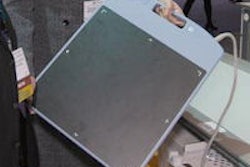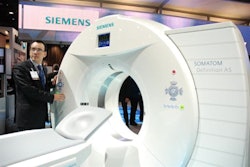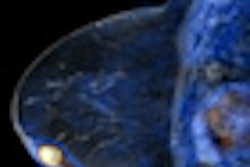Radiation overdoses and other errors during radiation therapy are the top hazard faced by patients from medical technology, according to a top 10 list for 2011 compiled by research and consulting group ECRI Institute of Plymouth Meeting, PA. Other top hazards include high CT radiation dose and healthcare IT data loss.
Each year, ECRI compiles a list of health technology hazards that it believes warrants critical attention by hospitals and other healthcare organizations. The list is based on a review of recent product recalls, analysis of device problem reporting, and ECRI's experience in investigating and consulting on device-related incidents, said James Keller Jr., the organization's vice president of health technology and safety.
No. 1: radiation therapy errors
While acknowledging the low incidence rate of radiation therapy errors, ECRI suggested that they are underreported. ECRI advised that errors are being caused by human mistakes, software-related problems (more than 40 reports were logged in ECRI's Health Devices Alerts database from July 2009 to July 2010), and difficulty keeping up with the pace of technological change, specifically due to inexperience with complex, newly introduced technologies.
ECRI recommended that cancer treatment centers review all aspects of radiation therapy operations and maintain rigorous quality assurance programs. It suggested that all treatment equipment should be properly installed, commissioned, and maintained; staff should have comprehensive training and technical/maintenance support; all protocols should be documented and followed; and incident reporting should be vigorously upheld and corrective actions taken promptly, regardless of cost.
No. 4: high CT radiation dose
ECRI's chief concerns about CT scans are that excessive radiation dose exposure can cause cancer, that there currently is no automated way to calculate radiation dose exposure to all affected organs, and that no regulatory dose limit exists in diagnostic radiology. It acknowledged that "the crux of the problem is that a delicate balance must be achieved between keeping doses low and maintaining adequate image quality."
Noting that new dose-minimizing technologies have been developed, ECRI expressed its concern that these tend to be available only on the latest and most expensive CT equipment, which "many healthcare facilities simply cannot afford to purchase."
It recommended that imaging facilities educate referring physicians about ordering the most appropriate diagnostic studies, monitor and audit radiation levels used in routine CT exams, optimize and control x-ray protocols, keep staff adequately trained, and purchase software upgrades and equipment designed to reduce radiation dose.
No. 5: healthcare IT data loss
Convergence of medical technology and healthcare information technology is becoming more commonplace. Although convergence can improve standards of care and operational efficiencies, ineffective convergence can adversely affect patient care. ECRI cited risks such as data being associated with the wrong patient, errors in data analysis, incompatibility between multivendor software and systems, errors of omission or transmission, and lost or stolen data.
Some of ECRI's recommendations include ensuring good working relationships between IT staff and clinical engineering, ensuring that cybersecurity is a priority, and adhering to a robust software management program, because many healthcare IT errors are due to software anomalies.
Other items in the 2011 top 10 list include:
- No. 2: alarm hazards
- No. 3: cross-contamination from flexible endoscopes
- No. 6: Luer misconnections of tubing and catheters
- No. 7: oversedation during use of patient-controlled analgesia (PCA) infusion pumps
- No. 8: needlesticks and other sharps injuries
- No. 9: surgical fires
- No. 10: defibrillator failures in emergency resuscitation attempts
A complete copy of the report can be accessed by clicking here.
By Cynthia E. Keen
AuntMinnie.com staff writer
December 10, 2010
Related Reading
Cancer risk from CT lower than previously estimated, December 2, 2010
U.S. radiation concerns overdue: Siemens executive, November 29, 2010
Patient safety symposium draws crowds at AAPM, July 22, 2010
Studies spotlight high CT radiation dose, increased cancer risk, December 14, 2009
Intrusion-detection testing finds network vulnerabilities, August 11, 2008
Copyright © 2010 AuntMinnie.com



















